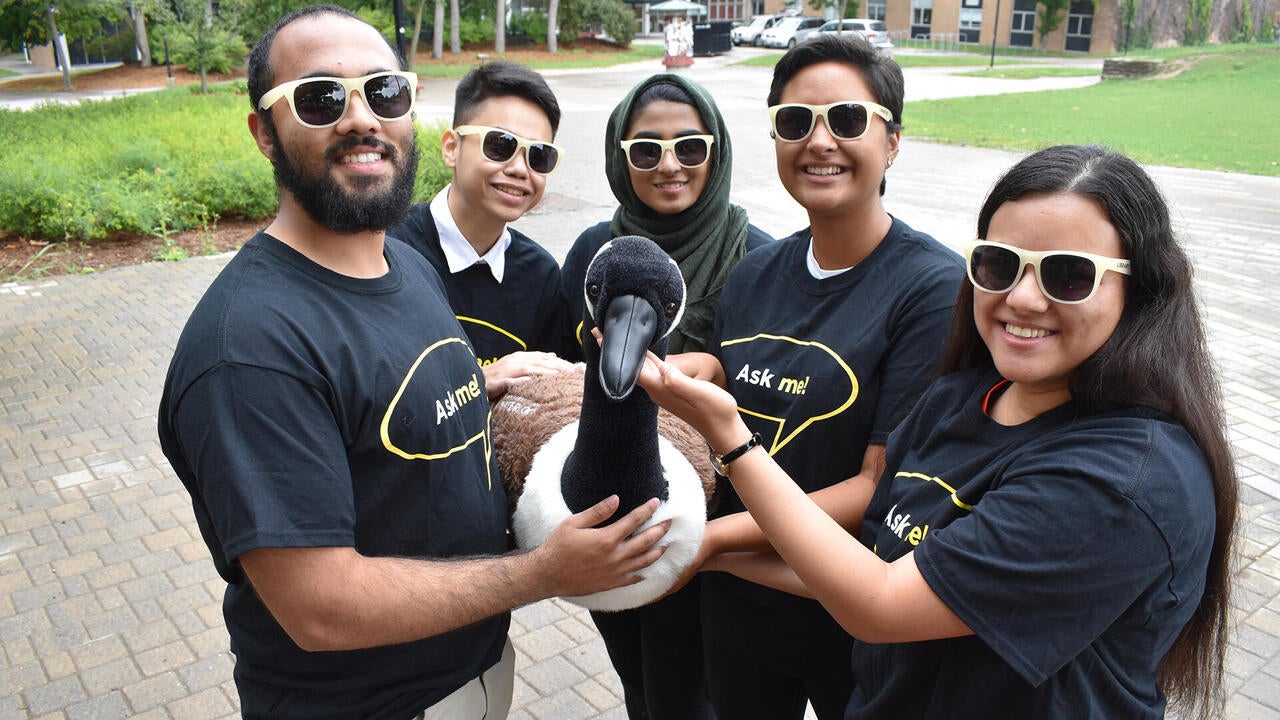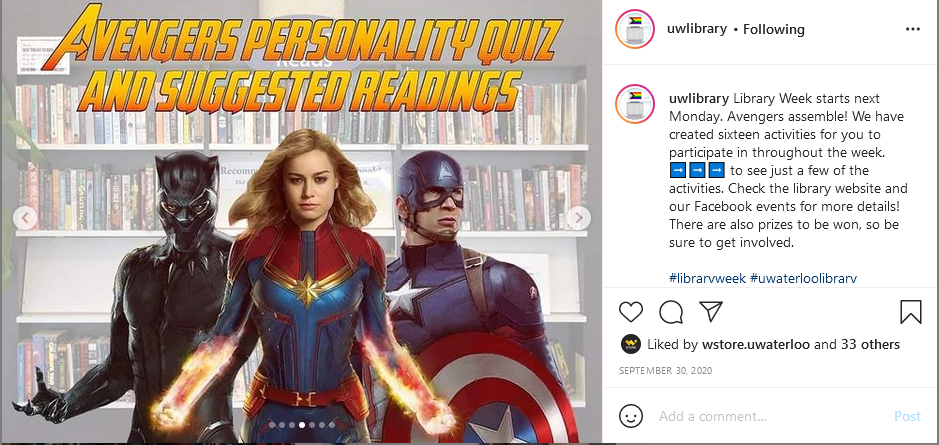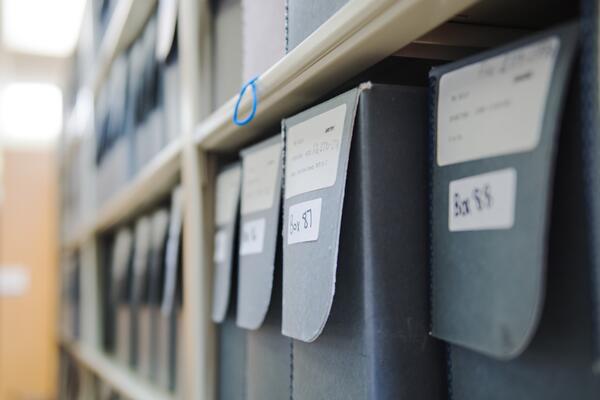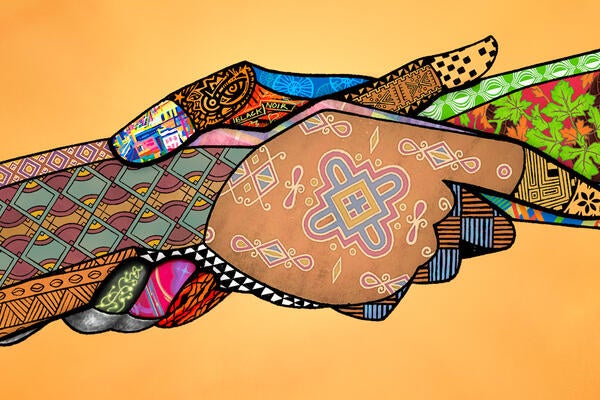
Library ambassadors connect students with services — and stress relief
Generous donors help ambassadors support their fellow students while building skills for the future

Generous donors help ambassadors support their fellow students while building skills for the future
By Beth Bohnert Office of Advancement It’s the smiles that mean the most to Monique Mery.
It’s the smiles that mean the most to Monique Mery.
The fourth-year biomedical sciences student recently completed her last term as a Library ambassador. It was a role that not only helped her to develop skills she’ll use in medical school but allowed her to make a positive impact on her peers as well.
Monique is one of dozens of Waterloo students who have participated in the ambassador program since it launched five years ago. Made possible through the generosity of donors who give to the University of Waterloo Library Fund, the program enables the Library to strengthen its relationships with students, parents, faculty and staff, while boosting awareness of its services. At the same time, it provides ambassadors with paid work experience that prepares them for future employment.
Along with Library staff, ambassadors play a key role in reaching students. Ambassadors make in-class presentations, demonstrate new Library systems and attend campus fairs, answering questions about everything from academic integrity to printing services.
In addition, each term the ambassadors complete a project focused on connecting the Library with the campus community. These projects require both practical considerations — ambassadors are required to create a project proposal, budget and marketing plan — and creativity to engage and educate students.

Ambassadors organize on-site events, virtual events, blogs and Instagram takeovers to share information and build a sense of community.
Whether online or in-person, all these activities showcase Library resources while incorporating themes of interest to students. Recent projects have involved serious topics such as diversity as well as more lighthearted aspects of campus life, like our goose population.
To combat the stress that many students feel, ambassador projects often focus on physical and mental health. For instance, last fall’s Avengers theme for Library Week featured “Stay strong like an Avenger” activities, highlighting on-campus wellness resources as well as academic supports and Library services.

The program encourages ambassadors to increase their competency in a variety of areas, including research, public speaking, leadership and teamwork.
“One of the most valuable experiences for me was learning to work toward a common goal with people who have different opinions,” Monique said, adding that the program created a safe space to practice these skills before entering the workplace.
For Monique, the most fulfilling part of the role, however, was being able to create positive experiences for her fellow students.
“I enjoyed just being able to interact with them and tell them about different services on campus or at the Library. I loved finding ways to improve their day and make them smile.”
“To the donors who helped make the ambassador program possible I would like to say thank you very much for ensuring the Library ambassador program continues,” she says. “Your contributions have not only provided an opportunity for students to get involved on campus and learn transferable skills, but you also helped the greater student body make meaningful connections with one another.”

Read more
Upside Robotics secures new funding to accelerate the future of sustainable farming

Read more
Discover the meticulous work that uncovered Black stories on campus and preserved them for the future

Read more
A message from the President and Vice-Chancellor
The University of Waterloo acknowledges that much of our work takes place on the traditional territory of the Neutral, Anishinaabeg, and Haudenosaunee peoples. Our main campus is situated on the Haldimand Tract, the land granted to the Six Nations that includes six miles on each side of the Grand River. Our active work toward reconciliation takes place across our campuses through research, learning, teaching, and community building, and is co-ordinated within the Office of Indigenous Relations.